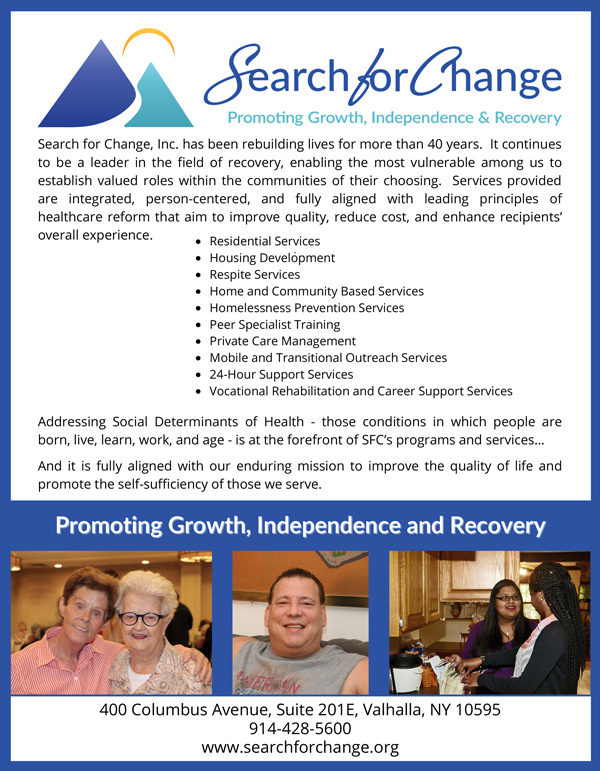Our behavioral healthcare system has navigated innumerable challenges in pursuit of its overarching aim to alleviate human suffering. Ostensible improvements in treatment protocols and related technologies, sociocultural developments (specifically those that promote a greater understanding and acceptance of individuals afflicted with mental health and substance use conditions), and a movement toward “whole person” (i.e., integrated) care are merely a few of the advances that should have produced measurable progress toward the aforementioned aims. But this has not occurred. Our collective psychological health and psychic wellbeing have deteriorated significantly in recent decades. Although a certain share of this trend may be attributed to the enduring COVID-19 pandemic and its ancillary effects, an increasing incidence of anxiety, depression, substance abuse, and other leading manifestations of psychosocial distress preceded the arrival of the novel Coronavirus. Why? In short, the behavioral healthcare system has failed to address (and in some instances to even acknowledge) the root causes of our suffering. In doing so it has effectively ignored centuries of wisdom that, if properly understood and applied, might yield immeasurably greater improvements in public health.

Ashley Brody, MPA, CPRP
At the turn of the 20th Century, Émile Durkheim, the figurative father of sociology, posited various precursors to suicide in his seminal treatise on the subject (Durkheim, 1897). His writings have been thoroughly scrutinized and inspired an impressive body of polemics. Some regard his conclusions with skepticism and contempt. Few, however, would dispute his leading assertions that social disintegration and the dissolution of institutions through which meaning and purpose are derived figure prominently in the existential woe that underpins much of our suffering. Durkheim’s insights emerged in concert with (and likely in response to) the worst depredations of the Industrial Revolution that rent the social fabric that had entwined families and communities for centuries. The Industrial Revolution undoubtedly ushered in an epoch of technological “progress” and the rise of capitalist values that transformed the national and global economies, but it also marked the demise of an agrarian lifestyle to which humans had been acculturated for nearly 10,000 years. This lifestyle, though arduous and inequitable in many respects, fostered activities and values consistent with our biopsychosocial needs. Inhabitants of agrarian societies enjoyed an intimacy with nature, cooperation toward common goals, and opportunities for rest and rejuvenation that largely disappeared with the emergence of factories (Barth, 2001).
Subsequent developments in the American economy throughout the 20th and 21st Centuries have done little to mitigate the depersonalization that characterized the Industrial Era. The factories that once dominated our landscape have been supplanted by an amorphous “Information” economy reliant on increasingly advanced telecommunications technologies that foster communication at the expense of genuine human connection (Hunt, Marx, Lipson, & Young, 2018). Furthermore, these technologies tether many of us to our workplaces in ways we could not have imagined scarcely a decade or two ago, effectively blurring (if not altogether eradicating) the boundaries between our personal and professional lives. Recent analyses of this trend confirm its deleterious effects. A rising incidence of professional burnout and general workplace dissatisfaction may be attributed, at least in part, to employees’ inability to separate themselves from their workplaces and to enjoy periods of rest and rejuvenation essential to optimal health (Becker, Belkin, & Tuskey, 2018). Perhaps not surprisingly, a Gallup poll administered in June, 2013 revealed 70% of Americans either “hate” their jobs or have “checked out” of them (Lopez, 2013). This finding emerged seven years before the onset of the COVID-19 pandemic and its well-documented effects on the national economy, most notably an unprecedented volatility in labor markets characterized by some as the “Great Resignation” (Gulati, 2022).
Our relationship with work is surely not the only determinant of our collective emotional health and wellbeing, but we cannot underestimate its extensive repercussions. Many of us commit a substantial share of our waking hours to professional obligations, and nearly all of us depend on our jobs for financial stability. This is prima facie evidence of its primacy in our lives, and it logically follows that the economic upheaval we have experienced in recent years (especially during and as a partial consequence of the COVID-19 pandemic) should produce widespread distress. For many, this distress manifests as anxiety, depression, substance abuse, and other “conditions” that fulfill corresponding diagnostic criteria (Witteveen & Velthorst, 2020). In Deaths of Despair and the Future of Capitalism, authors Anne Case and Angus Deaton explore this in considerable detail and offer a compelling critique of the state of the American economy as described above. They suggest it fuels many of the societal ills our behavioral healthcare system is now charged to treat (Case & Deaton, 2020). Their analysis focuses primarily on the plight of the working class whose wages and way of life have been upended by seismic changes in the national and global economies that preceded the pandemic. A core tenet of their findings, however, is applicable to other rungs of the socioeconomic hierarchy. Globalization writ large has isolated us from each other and from many of the pillars through which we derive meaning, purpose, and fulfillment. The demise of families, communities, and spiritual institutions, among many others, has left us wanting for much that cannot be supplied by the workplace (Heymann, 2006).
In consideration of the complex sociohistorical and economic factors in which human suffering (and, more tragically, “Deaths of Despair”) unfolds, modern treatments may be viewed as palliative in nature insofar as they alleviate symptoms but fail to address their root causes. And as much as we lament a dearth of behavioral healthcare resources that impedes access to treatment, we must also acknowledge fundamental limitations of the healthcare system. Simply put, counseling, medication, and other hallmarks of conventional behavioral healthcare cannot resolve structural impediments to optimal health whose etiology is primarily socioeconomic in nature.
Ashley Brody, MPA, CPRP, is Chief Executive Officer at Search for Change, Inc. The author may be reached at (914) 428-5600 (x9228) or by emailing abrody@searchforchange.org.
References
Barth, F. 2001. Features of Person and Society under Agrarianism: Collected Essays. London: Routledge & Kegan Paul.
Becker, W.J., Belkin, L., & Tuskey, S. (2018). Killing Me Softly: Electronic Communications Monitoring and Employee and Spouse Well-being. Academy of Management Proceedings, 2018(1). https://doi.org/10.5465/AMBPP.2018.121
Case, A. & Deaton, A. (2020). Deaths of despair and the future of capitalism. Princeton University Press.
Durkheim, É. (1961). Suicide: A study in sociology (J. Spaulding & G. Simpson, Trans.). The Free Press. (Original work published 1897)
Gulati, R. (2022). “The Great Resignation or the Great Rethink?” Harvard Business Review. https://hbr.org/2022/03/the-great-resignation-or-the-great-rethink
Heymann, J. (2006). Forgotten families: Ending the growing crisis confronting children and working parents in the global economy, volume 10. Oxford University Press.
Hunt, M.G., Marx, R., Lipson, C., & Young, J. (2018). No More FOMO: Limiting Social Media Decreases Loneliness and Depression. Journal of Social & Clinical Psychology, 37(10), pp. 751-768. https://doi.org/10.1521/jscp.2018.37.10.751
Lopez, R. (2013, June 17). Most workers hate their jobs or have ‘checked out,’ Gallup says. Los Angeles Times.
Witteveen, D. & Velthorst, E. (2020). Economic Hardship and Mental Health Complaints During COVID-19. Proceedings of the National Academy of Sciences, 117(44), pp. 27277-27284. https://doi.org/10.1073/pnas.2009609117







